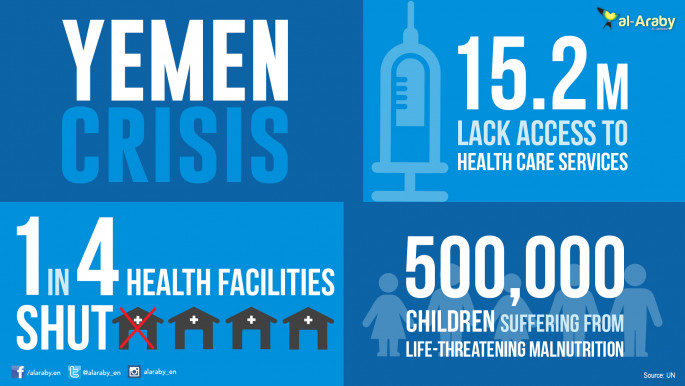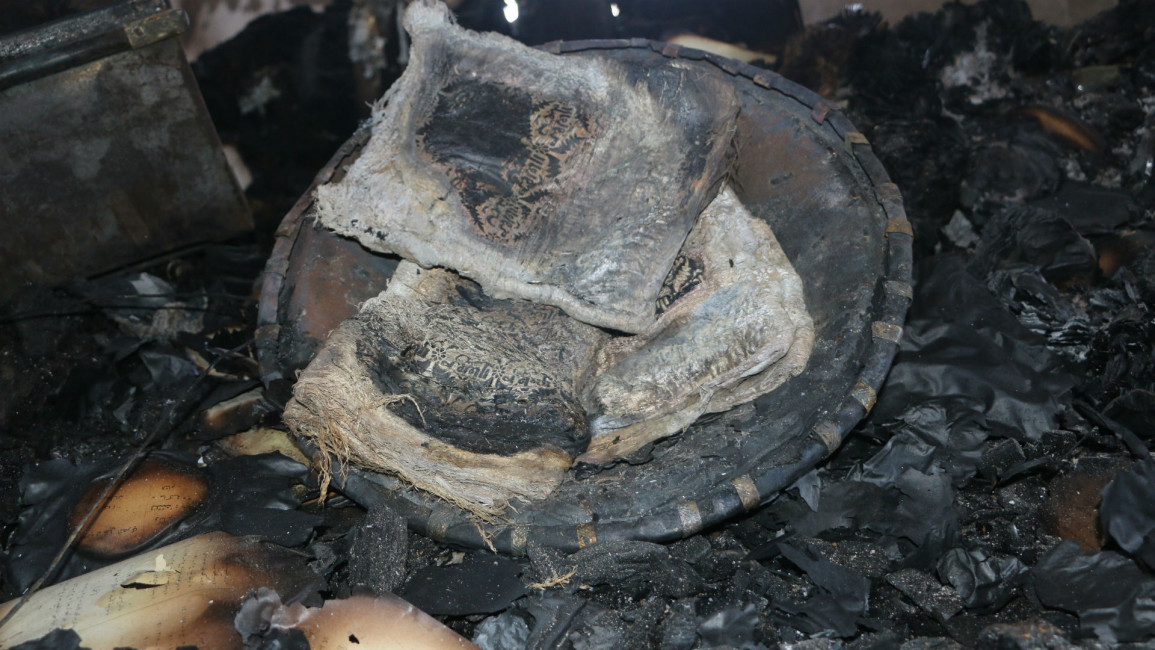Houthi shelling reduces historic Yemen museum to rubble
Houthi shelling reduces historic Yemen museum to rubble
Houthi rebels have destroyed a national museum holding some of Yemen's oldest treasures, activists say.
2 min read
Some of the world's oldest Qurans were destroyed in the fire [Getty]
The Taiz national museum, once Yemen's home of almost all the northern province's historical artefacts, has been reduced to ashes after heavy shelling by Houthi rebels caused a destructive fire over the weekend.
Reham al-Badr, a local activist, described the interior as filled with rubble and twisted metal, while the walls were "torched black".
Among the national treasures here were some of the world's oldest Qurans, dating back more than 1,000 years - along with swords, manuscripts and foreign gifts, as well as personal belongings of the deceased Imam Ahmed, the museum's founder and North Yemen's last religious ruler before the Arab nationalist revolution of 1962.
But this is not the first attack on the museum.
Local residents accuse the Houthis of targeting the city's history and culture, saying the group does not appreciate the significance of national treasures.
However, an anonymous Houthi leader denied the accusations and blamed local resistance groups for using the museum as a military base.
Mamoon Mohammed, a history professor at Taiz University, confirmed the anonymous allegations and described the use of the museum by armed groups as a "mistake".
"But this is not enough of an excuse for the Houthis to target the museum," he added.
He called for a complete ceasefire by all sides, and warned the country's history remains at risk.
Taiz, Yemen's third-largest city, grabbed international attention over recent weeks when activists launched a media campaign to shed light on the Houthi blockade.
The northern province is facing a complete siege, under which an estimated 25,000 local residents have been deprived of basic food and medical supplies.
"Only a few shops are open," said Jamie McGoldrick, the UN's humanitarian coordinator in the war-torn country.
"Food and other basic goods needed to survive are in short supply. Basic services are scarce, including access to water and fuel."
The ongoing conflict began in September 2014 when Houthi forces seized control of government buildings in the capital, Sanaa.
Yemen's dire situation further deteriorated when a Saudi-led coalition launched an aerial bombing campaign in a bid to defeat the Houthis and reinstate the government of Abdrabbuh Mansur Hadi.
So far, more than 5,800 people have been killed in what is now being described as "the world's worst humanitarian crisis".
Reham al-Badr, a local activist, described the interior as filled with rubble and twisted metal, while the walls were "torched black".
Among the national treasures here were some of the world's oldest Qurans, dating back more than 1,000 years - along with swords, manuscripts and foreign gifts, as well as personal belongings of the deceased Imam Ahmed, the museum's founder and North Yemen's last religious ruler before the Arab nationalist revolution of 1962.
But this is not the first attack on the museum.
Local residents accuse the Houthis of targeting the city's history and culture, saying the group does not appreciate the significance of national treasures.
However, an anonymous Houthi leader denied the accusations and blamed local resistance groups for using the museum as a military base.
Mamoon Mohammed, a history professor at Taiz University, confirmed the anonymous allegations and described the use of the museum by armed groups as a "mistake".
"But this is not enough of an excuse for the Houthis to target the museum," he added.
He called for a complete ceasefire by all sides, and warned the country's history remains at risk.
Taiz, Yemen's third-largest city, grabbed international attention over recent weeks when activists launched a media campaign to shed light on the Houthi blockade.
The northern province is facing a complete siege, under which an estimated 25,000 local residents have been deprived of basic food and medical supplies.
"Only a few shops are open," said Jamie McGoldrick, the UN's humanitarian coordinator in the war-torn country.
"Food and other basic goods needed to survive are in short supply. Basic services are scarce, including access to water and fuel."
The ongoing conflict began in September 2014 when Houthi forces seized control of government buildings in the capital, Sanaa.
Yemen's dire situation further deteriorated when a Saudi-led coalition launched an aerial bombing campaign in a bid to defeat the Houthis and reinstate the government of Abdrabbuh Mansur Hadi.
So far, more than 5,800 people have been killed in what is now being described as "the world's worst humanitarian crisis".
 |



